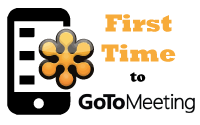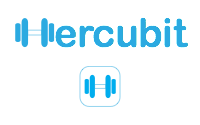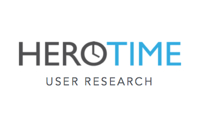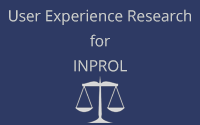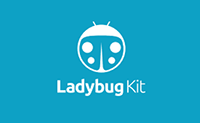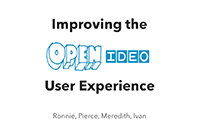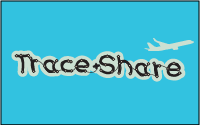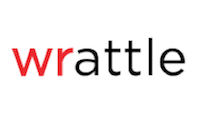This page is modeled after http://courses.ischool.berkeley.edu/i290-iol/f13/showcase.php
Major Project Showcase!
A selection of summaries and links to students’ major project assignment reports.
Kelly Park, Noriko Misra
This UX research project studies experience of online meeting attendees who use GoToMeeting mobile application for the first time.
Shaohan Chen, Kate Hsiao
Hercubit is a wearable device on top of the Arduino architecture with motion and wireless sensors that accurately track user’s body movement while they are doing fitness exercise. We will also deliver a social platform which allows multi-player ranking system that we hope can engage the users more into exercising and thus benefit their health. The goal of this project is to understand: 1) What functionalities the fitness tracking devices have in the current market, and 2) How wearable devices help users to do exercise at home and what are the incentives and frustrations. In order to understand the above questions and goals, we conducted a competitive analysis, a usability testing and a diary study.
Christine Petrozzo, Sophie Barness, Shaun Giudici, Lazar Stojković
HeroTime is an online lifestyle service marketplace for listing, discovering and booking skill-wisdom, or experiential knowledge, within a local community, from knitting to beer-brewing to bouldering and more. HeroTime connects people with those who know the tricks of the trade to enrich their lifestyles, and offers providers the opportunity to monetize their skills and build an online reputation for their talents. We researched the existing competition, studied people who have previously bought (or attempted to buy) a lifestyle service within the past year, and evaluated new designs via usability tests.
Ishita Ghosh, Marjan Ghahremani, Ruchita Rathi
This project seeks to perform a user experience research for the International Network to Promote the Rule of Law (INPROL)’s website. It uses methods such as heuristic evaluation, usability testing and interviews to assess users’ needs and discover the usability issues of the website. It provides three key recommendations for improving the user experience of INPROL website.
The Ladybug Kit
Adam Chopko, Ajeeta Dhole, Elin Linding Jørgensen, Tom Lee
Our team partnered with Integrated Plasmonics, a SF based digital health start-up, to help the company with its first product, the Ladybug Kit (www.ladybugkit.com). The Ladybug Kit makes it possible for people who are looking to lower their cholesterol and improve their heart health to easily measure and track their cholesterol from home. The kit includes both hardware (a personal cholesterol meter and testing supplies) and software (mobile app for tracking and eventually coaching). The Berkeley team completed a series of usability tests and user interviews to help improve the mobile app’s user experience, and this project was the first time the app was formally tested with users. (Client has requested that this report remain confidential.)
Molly Robison
Matcher is a smartphone and web app, currently in the conceptual phase, to help people manage collections of physical things. For this project, I wanted to determine what the target demographic of Matcher is, what features it should and should not have in order to be useful to people who are trying to keep track of their physical collections, and whether or not it will be worth building in the future. I did a survey, interview, and competitive analysis of similar apps, and found that it is important for adding and removing items to be extremely easy, and that the most important use-case is keeping track of categories within a collection, such as things in different physical locations. I learned a lot of lessons about surveying and the logistics around conducting interviews, which are examined below. Going forward, I will let this idea marinate some more, and may very well end up building Matcher for another class or a personal project.
MOOCs
Kristin Stephens-Martinez
Massive Open Online Courses (MOOCs) are a recent phenomenon that exploded in the news the past few years. They have great opportunities to help instructors better understand how students are learning their course’s content. To explore these opportunities we conducted a needs analysis to better understand what instructors mean when they seek to know “What is going on?” (WIGO) in their course.
Ronnie Jakobsen, Pierce Gordon, Meredith Hitchcock, Ivan Buchanan
OpenIDEO is an online collaborative design community that aims to address interdisciplinary challenges in varied fields. While OpenIDEO’s website has been recently upgraded to improve the user experience, it still is challenging to use and has a steep learning curve. The goal of this project is to measure and identify the main usability pain points using techniques such as usability tests, heuristic evaluations and one-to-one interviews and propose solutions to those pain points.
Chan Kim, Ohnmar Khin
Trace+Share aims to help travelers easily capture their trip memories and share the experiences with their friends, family and the public. Diary studies and follow up interviews have been deployed to understand the traveler’s behaviors of capturing and sharing trip experience. In addition to the user research, usability testings have been conducted to evaluate and improve Trace+Share app.
Patrick Lavender, Adrian Fradd
Our research explored the potential market of an online platform for aspiring authors. It investigated user needs, unearthing insights around their creative process and pain points they experienced. This was complemented by an analysis and segmentation of the competitive landscape. And then, using a focus group we explored potentially compelling attributes of an online platform.
